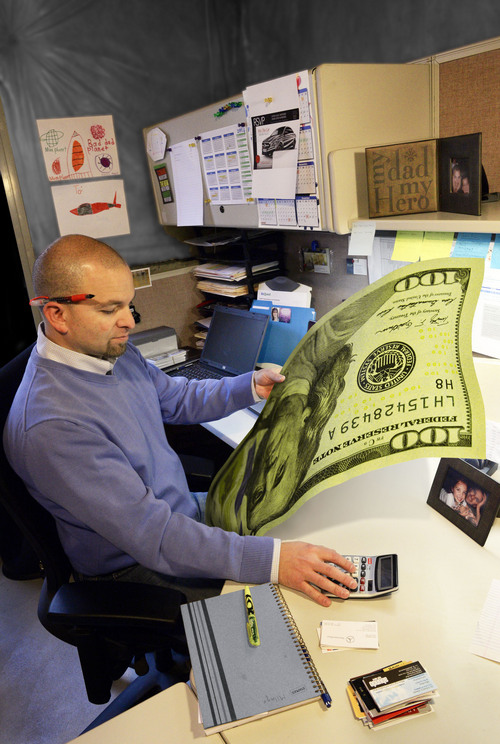This is an archived article that was published on sltrib.com in 2013, and information in the article may be outdated. It is provided only for personal research purposes and may not be reprinted.
At the start of every year, we make resolutions to shed off pounds and shed off temptations. What we need to think about is how to shed off personal debt.
Consumers in this country are $11.3 trillion dollars in debt, $856 billion of it from credit cards and another trillion from student loans, according to figures from the Federal Reserve. The average American household has more than $15,000 in credit card debt.
So it's clear that Americans need to hunker down and get serious about their finances. With a time for new beginnings and making resolutions, consider these tips and financial resolutions from Zions Bank Retail Strategies Manager Cristie Richards and financial website, WalletHub.com.
Organize finances • Know what bills you're paying. Know the interest rates and how much you're accumulating in interest. Have a filing system and create a budget.
"One of the things we hear from individuals is they get themselves into an unhealthy financial mess, and they claim they didn't realize they were going down that road until it was too late," Richards said.
All banks have online banking tools, including calculators, sample budgets and more to help consumers understand where their money is going each month.
Automatic transfer • Set up an automatic transfer from your checking account to a new savings account to build up savings. If you don't see the money, you're less likely to spend it.
Daily changes • Make a list of changes in your daily routine you can make to help save money, and create incentives to help you stick to those goals.
Financial buddy • Find a trusted friend to help you with your financial budget and help you keep to it. You're more likely to stick to your goals if you don't want to disappoint the person who knows.
Saving • If you have key savings accounts, such as a college fund for the kids, an emergency fund or a retirement fund, commit to increasing each of those accounts by 10 percent by the end of the year.
Use cash • If you don't have enough resources to pay off your credit card, then consider using more cash. It's harder to let go of cash than using your card. And when shopping, don't take your credit card with you so you won't fall into the temptation.
Shop fast • Go shopping when you're in a hurry. The more time you spend in a store, the more you will likely put things in the shopping cart. Make a list before you go shopping, which will help you stick to that list and buy nothing more.
Smart resolutions • Some of the most popular New Year's resolutions are things like "go on a trip" or "get fit." But those can be costly with travel expenditures and the price of a gym membership. When picking new resolutions, be smart and choose ones that don't put a dent in your pocket book.
Reasonable resolutions • New Year's resolutions don't have to be big pronouncements. Instead, think about ones that are reasonable and help save money, such as "bring a sack lunch to work four times a day" or "put $20 extra a month into my credit card payment."
Get healthy • Making resolutions to get healthier are not only better for your well being, they can help save money in health care costs in the long run such as doctor visits and prescription drugs.
House tour • Take a tour of your home and list ways you could save money such as adding insulation or deciding to lower the temperature a bit in the winter months. For every degree you lower your temperature in the home, you can save as much as 5 percent on your monthly gas bill.
Wash in cold • Washing your clothes in hot water may not yield much cleaner clothes. So consider washing more clothes in cold water to save on energy costs. Richards said you can save as much as 50 percent on your energy costs if you use cold water.
Twitter: @ohmytech
Google+: +Vincent Horiuchi



